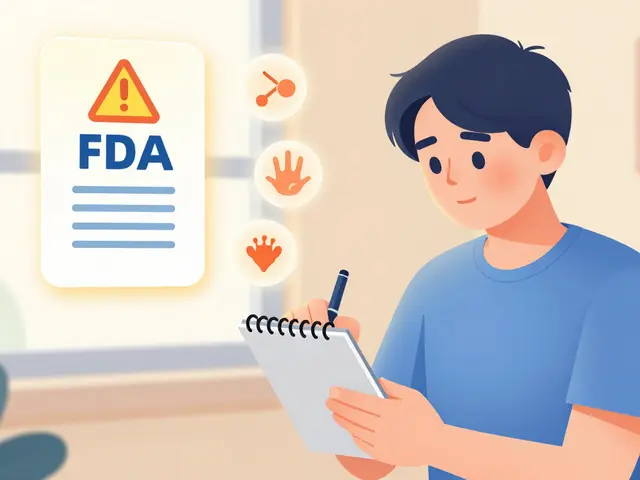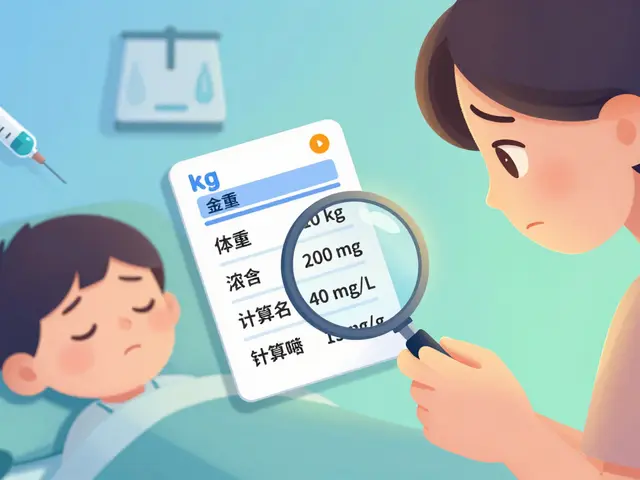When we talk about pain management, Hydrocodone is often the first name that pops up. It's a familiar choice for many, but it’s not the perfect fit for everyone. Maybe it’s the risk of addiction or the side effects—it’s worth exploring other routes.
Let’s kick things off by diving into Tricyclic Antidepressants, like good ol' Amitriptyline. These aren't just your run-of-the-mill mood boosters; their real magic lies in alleviating nerve pain for chronic conditions like fibromyalgia.
Pros
- Dual action for pain and depression
- Non-addictive
- Lower cost compared to newer medications
- Effective for neuropathic pain
Cons
- Anticholinergic side effects (e.g., dry mouth, dizziness)
- Requires gradual dose titration
- Not suitable for acute pain
Tricyclic Antidepressants (e.g., Amitriptyline)
If you’re grappling with both chronic pain and a bit of the blues, tricyclic antidepressants like Amitriptyline might just be your jam. Originally cooked up to tackle depression, these meds pull double duty. They work by modulating neurotransmitters in your brain, which can help soothe nerve pain you might feel with conditions like fibromyalgia or chronic back pain. Kind of like a two-in-one shampoo and conditioner, but for nerves and mood.
One of the nice perks here is they’re non-addictive. With all the buzz about painkiller dependencies, Amitriptyline stands out as a safer choice for long-term management. Plus, your wallet might thank you since it’s often cheaper than some of the fancier, newer pills out there.
But, hold up. It's not all sunshine and daisies. This stuff can come with some annoying side effects like dry mouth or feeling dizzy. It also takes a little patience with dose titration—think baby steps to find what works best without feeling like a zombie. Oh, and if you’re dealing with acute pain, you might want to look elsewhere; it's not the fastest worker around.
In terms of scenarios where Amitriptyline shines, consider it for those slow-burn types of pain rather than a sudden spike. You might find this balance helpful if depression is dancing alongside your pain.




Kristin Violette on 26 March 2025, AT 05:53 AM
When you dive into the pharmacodynamics of chronic pain, you quickly discover that the therapeutic landscape is far richer than just opioid agonism. Beyond tricyclic antidepressants, the serotonergic-noradrenergic reuptake inhibitors (SNRIs) such as duloxetine and venlafaxine have amassed a robust evidence base for neuropathic pain modulation. Their dual reuptake inhibition amplifies descending inhibitory pathways, thereby attenuating nociceptive transmission at the spinal dorsal horn. Moreover, gabapentinoids like pregabalin and gabapentin act on the α2δ subunit of voltage‑gated calcium channels, curbing ectopic neuronal firing that underpins conditions like diabetic neuropathy. From a cost–effectiveness perspective, many of these agents are now available in generic formulations, reducing the financial barrier for long‑term adherence. The side‑effect profile, while not negligible, tends to be less stigmatized than opioid dependence, with dizziness, mild edema, and occasionally weight gain being the primary concerns. Dose titration remains a cornerstone of therapy; initiating at sub‑therapeutic doses and escalating gradually mitigates adverse events while allowing the patient’s neurophysiological milieu to adapt. In clinical practice, a multimodal regimen that synergizes an SNRI with a low‑dose tricyclic can yield additive analgesia, especially in mixed nociceptive–neuropathic pain phenotypes. For patients with comorbid depression, this combinatorial approach can address both affective and sensory dimensions, akin to treating two interlinked variables in a regression model. It is also prudent to consider non‑pharmacologic adjuncts-cognitive behavioral therapy, graded exercise, and neuromodulation techniques-to scaffold pharmacotherapy and enhance functional outcomes. Ultimately, the goal is to construct a patient‑centered analgesic algorithm that eschews the pitfalls of opioid reliance while leveraging the mechanistic diversity of analgesic agents. By staying abreast of emerging data, clinicians can judiciously tailor interventions that align with each individual’s biopsychosocial context, thereby fostering sustainable pain relief and quality of life.